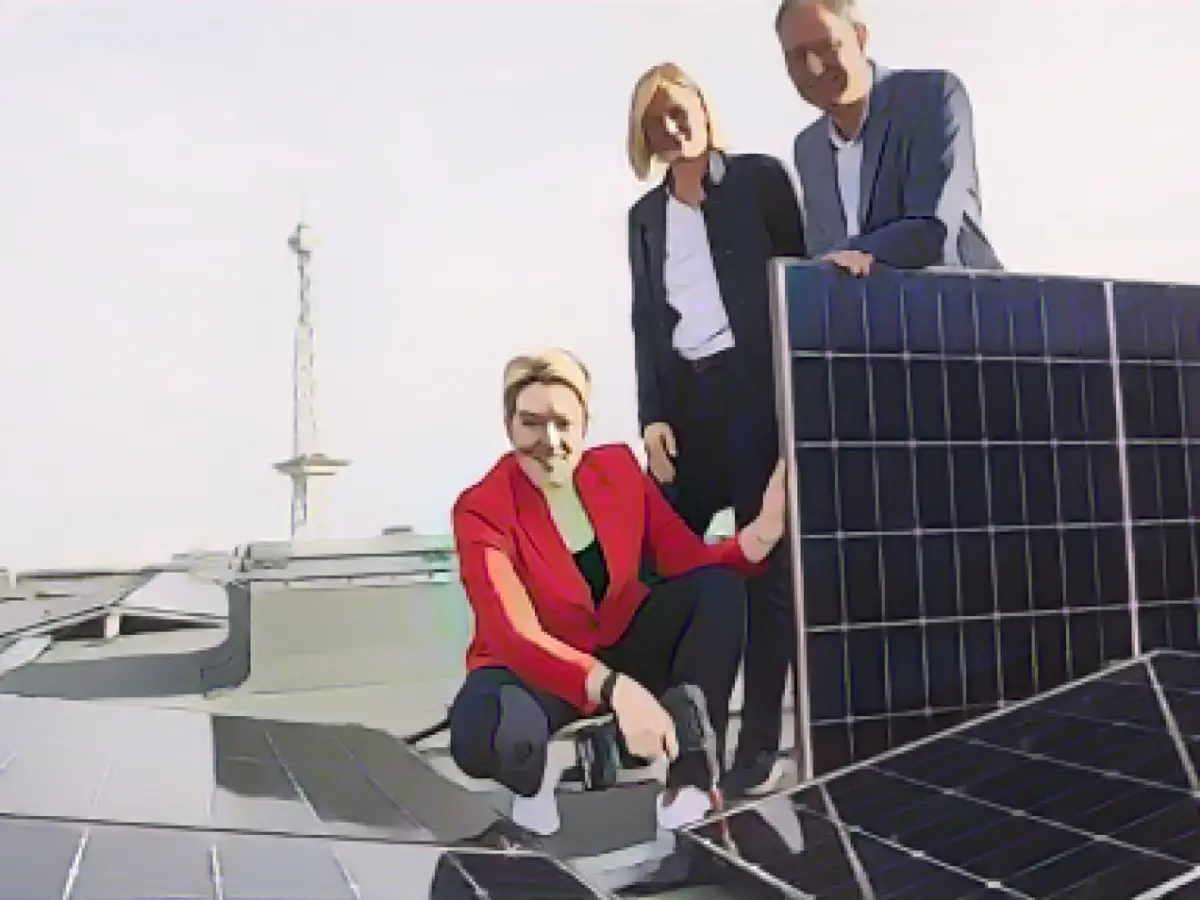Berlin Boosts Solar Energy with Giffey's Push for Swifter Expansion
In the midst of global environmental concerns, Berlin is making strides in solar energy expansion. Senator Franziska Giffey, the city's Economic Affairs Senator, thinks that while Berlin is heading in the right direction, it's not progressing fast enough. Specifically, Giffey is not satisfied with the pace of solar energy adoption by businesses and the public sector.
Breakthrough Year for Solar in Berlin
The SPD politician celebrated a significant tipping point in Berlin's solar expansion in 2023, with over 25,000 solar systems across the city at year's end. Out of that total, a remarkable 10,000 were installed in the past twelve months alone. That growth rate of nearly three times compared to the previous year has also seen a more than double in capacity, indicating Berlin's commitment to solar energy.
The Economy Needs to Step Up
Despite these impressive statistics, Giffey wants to see more dynamism from the economy and businesses. To date, Berlin companies have only exploited about three percent of their solar potential on rooftops, leaving room for improvement in this area. Giffey also calls for increased speed in solar expansion from the public sector, particularly in installing solar panels on government buildings.
Skilled Labor is Key
Greeceed by ambitious goals for Berlin's energy transition, including a 25% solar energy target by 2035, Giffey and her colleagues acknowledge that education and skilled labor are instrumental for making progress. Berlin is planning to support the industry by setting up a new climate workshop, a place for training in the climate professions.
Funding Program for Balcony Power Plants
A grant of 500 euros subsidizes the installations of solar balcony systems in apartments, private homes, and garden sheds, with over 6,700 applications already submitted since the program's launch in February. Giffey believes that these subsidies help alleviate high energy costs experienced by Berliners.
Overcoming Challenges
Several challenges arise in integrating solar energy into cities like Berlin, including compatibility with historic preservation, digitalization of processes, and the scarcity of skilled labor. Giffey has pointed out efforts to address these issues, such as streamlining compatibility measures and increasing personnel capacities at Stromnetz Berlin GmbH.
Provoking Thought on Global Solar Trends
The focus on solar energy expansion in Berlin serves as a valuable example for other cities and countries in their energy transition plans. As the world grapples with climate change, the adoption of renewable energy sources like solar power becomes increasingly crucial.
Sources:
Extra Insights
- An Expanding Market: Germany's evolving policies and incentives have driven up the number of new solar installations, with 15,318 new installations added in 2024 compared to 10,800 in the previous year [1].
- Solarplus Funding: The Solarplus funding program has experienced a surge in interest, receiving 11,395 approved applications for various solar-related projects [1].
- Storage Integration: To maximize the potential of solar energy, efficient grid integration and strategic placement of batteries are necessary to avoid overcapacity issues and ensure grid stability [2][5].
- German Policies: Mandatory photovoltaic (PV) installation policies have been expanding in Germany, with several federal states planning to implement such regulations starting in 2025 [4].
- Technological Advancements: Decreasing costs of solar panels and battery storage systems enable widespread access to solar energy solutions [1][5].
[1] [2] [4] [5]








